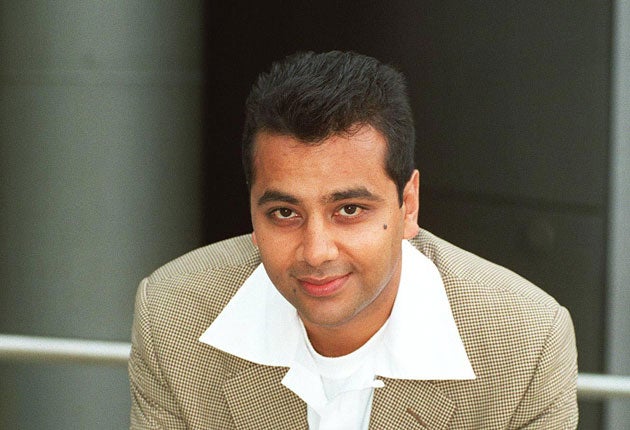King of Madchester clothing is bankrupt
The founder of the Joe Bloggs label is being chased for millions owed from high-risk spread betting

Your support helps us to tell the story
From reproductive rights to climate change to Big Tech, The Independent is on the ground when the story is developing. Whether it's investigating the financials of Elon Musk's pro-Trump PAC or producing our latest documentary, 'The A Word', which shines a light on the American women fighting for reproductive rights, we know how important it is to parse out the facts from the messaging.
At such a critical moment in US history, we need reporters on the ground. Your donation allows us to keep sending journalists to speak to both sides of the story.
The Independent is trusted by Americans across the entire political spectrum. And unlike many other quality news outlets, we choose not to lock Americans out of our reporting and analysis with paywalls. We believe quality journalism should be available to everyone, paid for by those who can afford it.
Your support makes all the difference.Shami Ahmed, the founder of Joe Bloggs and fashion tycoon whose baggy jeans became the uniform of Madchester's rave scene, has been forced into personal bankruptcy by spread betting firms chasing him for millions of pounds owed in gambling debts.
A High Court judgment against Mr Ahmed lays bare for the first time the story of how the one-time twentysomething millionaire from Burnley took a high-risk gamble that spectacularly backfired and left creditors, including the taxpayer, more than £10m out of pocket.
At its peak in the early 1990s, the Joe Bloggs brand was driving a £45m annual turnover as Manchester's rave scene, led by the Stone Roses and Happy Mondays, boosted sales. However, the past decade has not been so kind to the company's profit sheet.
Mr Ahmed thought he could regain his lost fortune by spread betting on the booming stock exchange. Between 2000 and 2007, he placed millions of pounds of bets. Any gains, of which there was "no evidence" before the court, were lost as soon as they were credited to his account. A £9m win from betting on Moss Bros shares, for example, was wiped out weeks later, an accountant representing HSBC bank told the judge.
Despite incurring heavy losses, Mr Ahmed always managed to find more cash to continue his gambling and finance a "conspicuously wealthy lifestyle", to which, the judge remarked, he was loyally committed.
In 2005, he was cleared in a fraud case in which HM Revenue and Customs alleged he had forged his own arrest to avoid paying creditors.
Eaitisham (Shami) Ahmed came to the UK from Pakistan in 1964 aged two. He left school at 16 and joined the family clothing business.
He told the court his family had financed his lifestyle and gambling in the belief he would soon become a cash cow again.
In a witness statement, Mr Ahmed said: "In successful times, I shared the success with my family, to whom I was very generous, with the result that the whole family shone in reflected glory from the wealth I was accumulating through my sound business decisions."
However, his "Midas touch" as a gambler deserted him. And, as the recession bit in 2007, the spread-betting firm Tradindex called in his mounting debt. It soon became suspicious about the extent of some of Mr Ahmed's "loans", including those made of family members.
Desperate to avoid bankruptcy, Mr Ahmed entered into an individual voluntary arrangement (IVA) with his creditors, the largest of which was HSBC, owed £8.3m. More than three-quarters of his creditors were needed to approve the IVA, which would allow Mr Ahmed to keep more of his assets.
Tradindex and HM Revenue and Customs, which were owed £130,000, objected to the IVA. However, it was approved because HSBC and the Ahmed family voted for it. The actual amount in family loans to Mr Ahmed changed during the case by more than £1m.
Lawyers for Tradindex appealed the IVA, alleging it was the victim of "vote rigging". During a High Court hear- ing last year they claimed that some loans had been "fabricated" or "inflated". Although the family denied this, the judge discounted several millions, resulting in the overturning of the IVA.
The ruling also criticised Andrew Androniku of the accountants Hacker Young for the way he handled the IVA. Mr Androniku declined to comment.
Mr Ahmed finally declared bankruptcy in April. He now faces a battle with his former bookies over remaining assets. He declined to comment.
Join our commenting forum
Join thought-provoking conversations, follow other Independent readers and see their replies
Comments